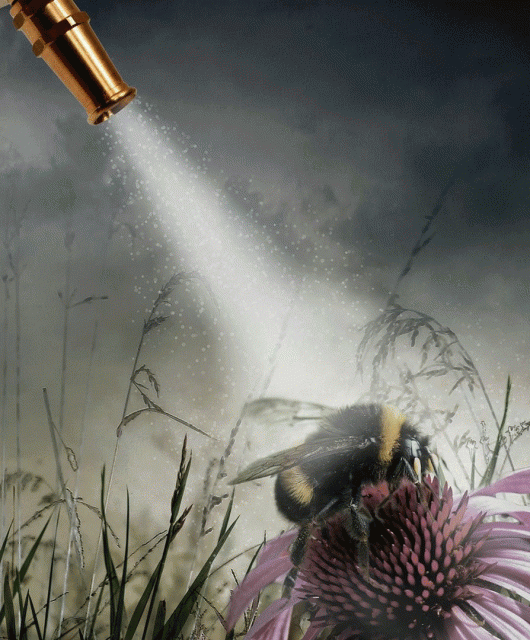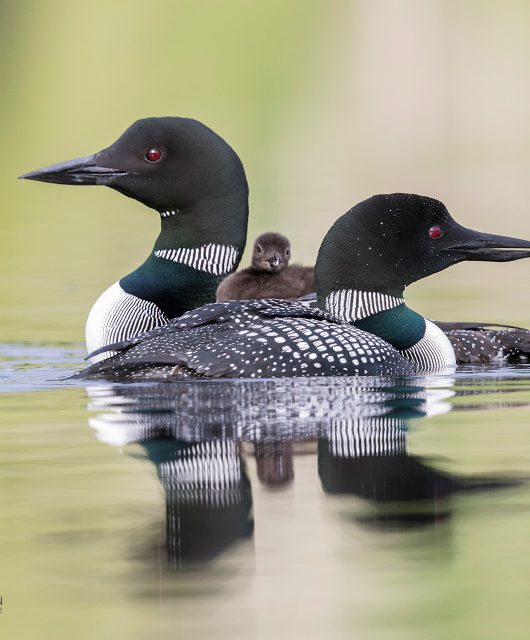I woke up early with excitement on the morning of June 15th, 2017, because it was my first day working at Scales Nature Park. I didn’t know what my official job title was, but it didn’t matter – I was ecstatic to be given the chance to actively participate in the conservation of species at risk, which has been an ever-present passion of mine.
When I was five minutes away from the centre, I noticed a dark figure on the side of the road. As I slowed down, I saw that it was a Snapping Turtle that appeared to be nesting. I rushed into the building at 7:50 a.m. looking for someone to tell, and found people in the kitchen having breakfast. I asked if they would get their equipment and let me drive them to a nesting turtle. No one knew who I was yet, and they had their reservations about my claim that I worked there, but after some convincing I drove my new co-workers to her nest and we began processing. I witnessed how to safely capture, measure, sex, weigh, notch, GPS mark, and collect eggs for captive incubation. It was an exhilarating first hands-on experience that I hope never becomes routine for me.
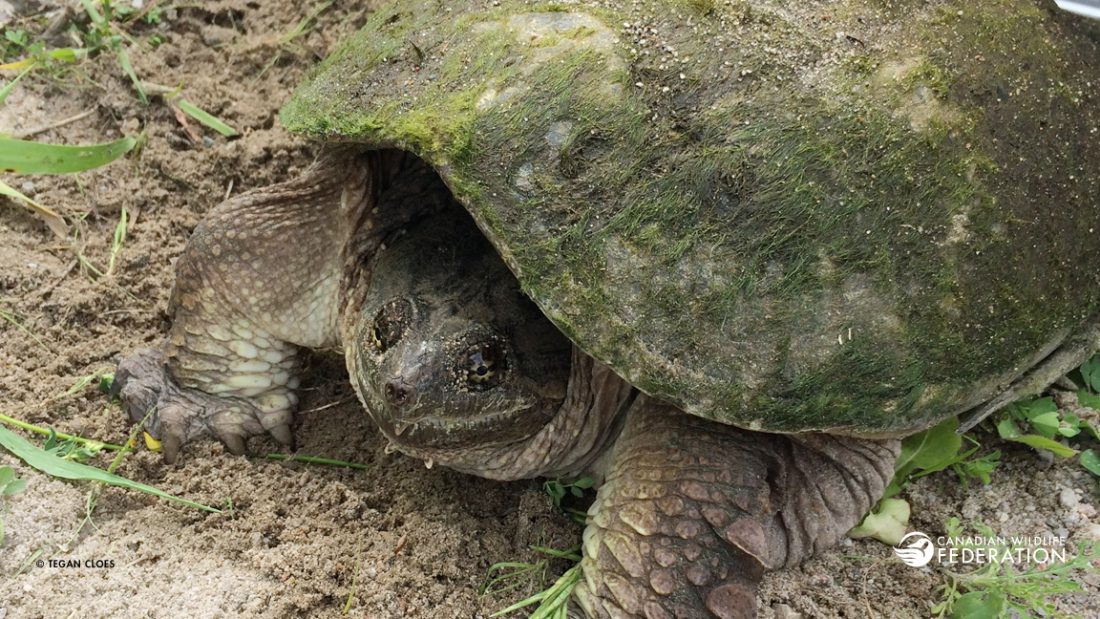
On August 15th, a clutch of five Painted Turtle hatchlings was ready to be returned to the wild. We transferred them from their incubation container to a travelling container filled with one centimetre of water. After typing in the GPS coordinates, we drove and parked on the side of a road near the location of their nest. As we walked the rest of the way, we saw a Spring Peeper, a Watersnake and plenty of poison ivy. When we arrived at the exact nest location, we noticed an adult Painted Turtle basking on a nearby log! We carefully released the hatchlings in the vegetative edge of the wetland, and wished them luck on their journey ahead.
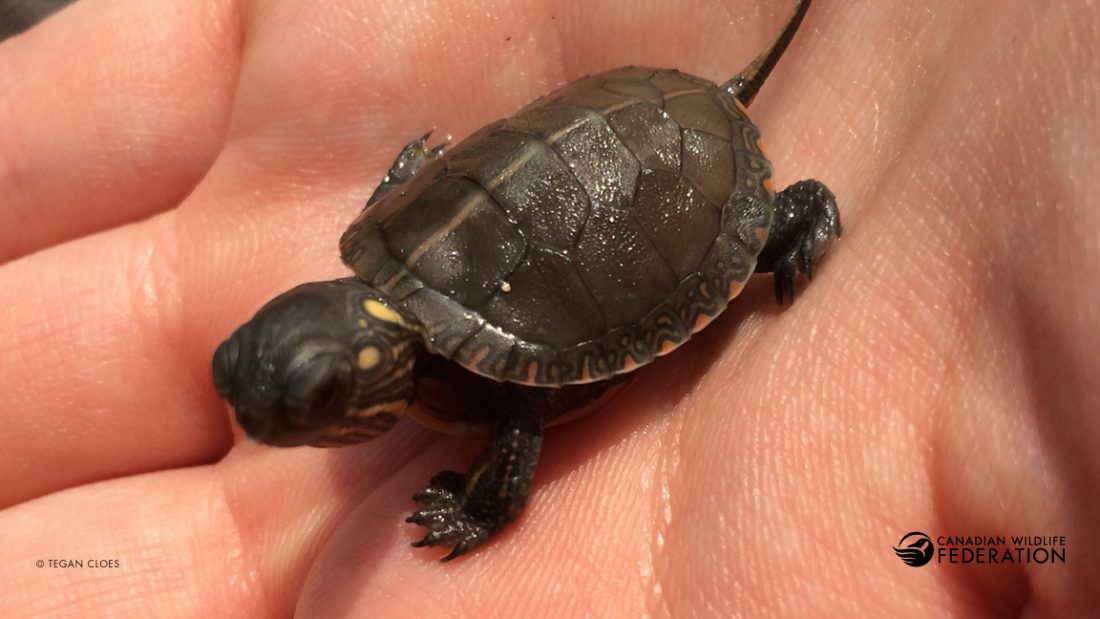
Turtles face many threats in Ontario, including habitat loss, road mortality, illegal collection, and an elevated number of predators. Scales Nature Park has partnered with the Canadian Wildlife Federation to run the START project (Saving Turtles At Risk Today), which aims to conserve six turtle species in central Ontario. One aspect of the project is a captive incubation program. Long-term research in Algonquin Park has shown that it takes approximately 1,400 Snapping Turtle eggs to produce 1 adult turtle about 20 years later. Turtle eggs are routinely eaten by animals such as raccoons and foxes. START project research suggests that about 80 per cent of turtle eggs in Muskoka will be eaten if interventions such as nest caging or captive incubation are not employed. Nest caging can be effective – but along roadsides it creates some challenges with driver safety, maintenance operation interference, and cage (or nest) theft or destruction. After two years of nest caging and monitoring research, the START project moved to captive incubation to avoid these issues.
Project staff and volunteers patrol roads during the nesting season (usually June) to watch for turtles and locate nests. The location of each nest is marked with a GPS and the eggs are excavated and placed carefully in plastic tubs for transport. They are later transferred to an incubation container and incubated for two to three months. A week after hatching, the babies are returned to the wetland or water body nearest to the original nest location.
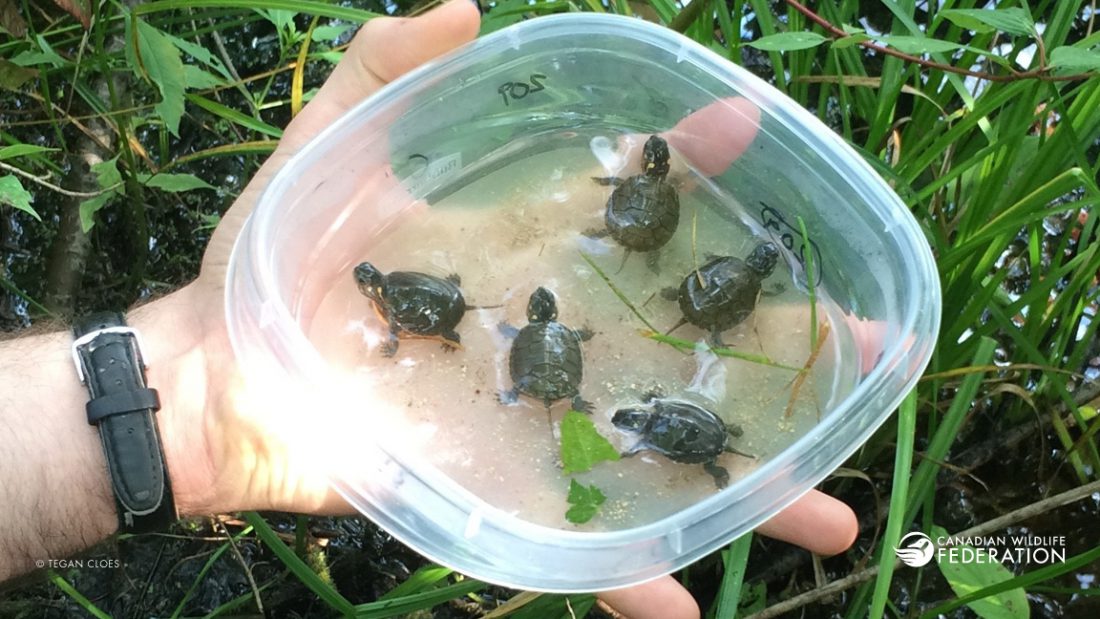
The START project has incubated approximately 8,000 eggs in 2017, including clutches of Snapping, Painted, Blanding’s, Map and Musk Turtles. Some eggs have already begun to hatch, and we look forward to releasing these hatchlings! Since most of these eggs would have been eaten in the wild, these hatchlings will provide a boost to our local turtle populations (although many of these turtles will be eaten by predators). The results of this work won’t be seen for years, so we hope this will be a long-term effort. You can get involved, by contacting [email protected].
To learn more about Canada’s freshwater turtles and what you can do to help protect species at risk, visit HelpTheTurtles.ca.
Author: Tegan Cloes

